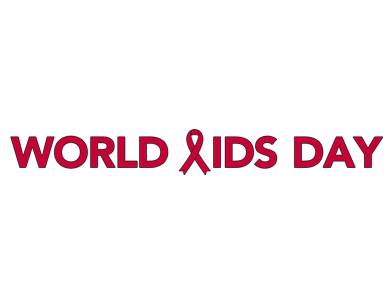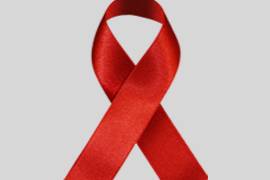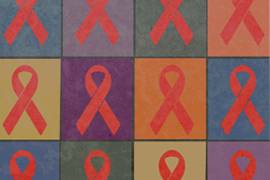
World AIDS Day 2013: 15 Ways HIV Criminalization Laws Harm Us All
Blog Search
Lambda Legal is working to eliminate criminal prosecutions that turn exclusively on a person’s HIV status.
Each day in the run-up to World AIDS Day, Lambda Legal is going to describe another way in which the HIV criminalization laws harm public health, result in unjust prosecutions, and serve primarily to stigmatize and oppress people living with HIV.
Check back daily to understand how these laws are doing more harm than good—and why Lambda Legal is working with public health advocates and others to reform them state by state.
Read our Ask Lambda Legal blog about HIV Disclosure.
Together we can create better public policies, ones that will keep us all healthy, happy and thriving!
These laws HARM PUBLIC HEALTH, because they...
1. Contradict public health messages regarding shared responsibility for safe sex, and create a false sense of security regarding a partner’s HIV status (“if s/he has HIV, s/he has to tell me”).
2. May actually reduce disclosure: if you might land in jail after telling someone your status, you may be disinclined to share that information, especially on the second (or later) encounter.
3. Alienate patients from care: information from healthcare providers is often used to prosecute, creating distrust in the provider-patient relationship and reducing opportunities for counseling.
4. Don’t deter targeted behavior: no studies have shown they prevent the transmission of HIV.
5. Create a disincentive to HIV testing: if you don’t know your status, you can’t be prosecuted.
These laws result in UNJUST PROSECUTIONS because...
6. Intent to transmit is not required to prosecute, which means people are imprisoned who had no intent to harm anyone and did not, in fact, place their partner at any risk of transmission.
7. It is extremely difficult to prove disclosure, because such conversations most often take place in private and are not documented.
8. Convictions may be strongly influenced not only by jurors' moral disapproval of casual sexual encounters but also an incorrect assessment of the risks both sex partners assume in that circumstance.
9. These laws ignore the science: an undetectable viral load is as effective as condoms in preventing transmission, yet neither is incentivized under most of these laws; and in prosecutions involving allegations of transmission, the state need not prove the defendant was the source of infection.
10. The punishments are completely disproportionate to any purported harm, with lengthy jail terms imposed even in cases of no real risk of transmission and no actual injury of any kind.
These laws serve primarily to STIGMATIZE AND OPPRESS people living with HIV because...
11. Their existence can be used as a coercive tool by the HIV-negative partner, who may threaten a false accusation and/or arrest and imprisonment if the HIV-positive person doesn’t do as told.
12. They further oppress already marginalized populations: sex workers are made felons, and those whose immigration status is dependent on a clean criminal record are subject to deportation.
13. Confidentiality may be compromised: nothing prevents a potential partner from telling whoever they want about the person’s HIV status, possibly leading to further stigma and illegal discrimination.
14. Convictions ruin individual lives: a felony conviction, followed by incarceration and then required registration as a “sex offender,” make it difficult to put one’s life back together.
15. These laws stigmatize ALL people with HIV: sensationalized media reports, which pay little attention to the details of an arrest or prosecution, and the supposed need for HIV-specific laws create the impression that every person living with HIV is a sexual deviant and likely predator.




